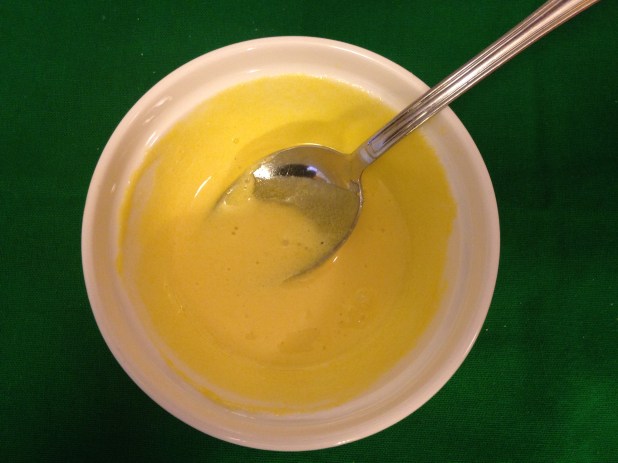We asked Montreal author and editor, Licia Canton, for a recipe and a story. For this Valentine’s Day, why not make sbattutino for the one you love?
“What’s the most important ingredient in this meal?” I grew up with that question.
I did a lot of the cooking after school. I was taught that every meal is made slowly and caringly. Love is the main ingredient to every meal.
Of all the foods I learned to prepare, from my mother and father, the sbattutino* is the one that I equate with love. My mother’s love. My mother is the only one who has ever made sbattutino for me. It’s quite simple to make really: simply beat an egg yolk with two tablespoons of sugar until it becomes a creamy white mixture and the grains of sugar are no longer distinguishable. Getting it just right involves constant beating for about fifteen minutes.
The sbattutino is comfort food – it tastes good and it’s uplifting. I yearn for my mother’s sbattutino when I am really down. A few years ago, when I was bedridden after a car accident, my mother asked if there was anything she could do for me.
“Can you make me a sbattutino?” I asked. “That’s all I want.”
Very early the next morning, she came over and made my childhood treat for breakfast.
The other day I visited my mother, now 80, in her Montreal-North home. She wanted to feed me, of course. She had left-over polenta and guinea hen. She had homemade biscotti.
“How about a sbattutino?” I asked.
She went over to the kitchen, took out the eggs and the sugar bowl.
We had some on bread – spreadable sbattutino. We had some with espresso and milk. And I also had some with Marsala.
Over the years I’ve made sbattutino for my children, but it just doesn’t taste the same as my mother’s.
*Literally sbattutino means “little beaten one.” (Isn’t it interesting that this drinkable food is uplifting.) The word has its root in the verb sbattere – to beat, as in “to beat an egg.” Sbattuto means beaten. And the suffix “ino” is the diminutive. For those who know a little Italian: it is “lo sbattutino” or “uno sbattutino,” not “il” or “un” because the “s” is followed by a consonant.
Text and Photos by Licia Canton








